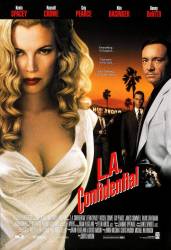
Question: What is Lynn's connection to the Nite Owl killings?
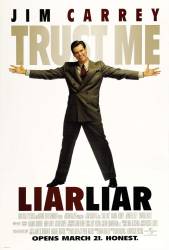
Question: How come Samantha can't have her ex husband Richard take custody of her kids?
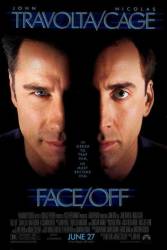
Question: Why did Castor shoot Dietrich? They were on the same side.
Chosen answer: Although they were on the same side, Troy is currently posing as Archer, which means he would have to do everything that the FBI would expect Archer to be doing. The whole point of the raid was to take out Archer, as well as Troy's gang. He would have rather risked killing part of his own gang than risk exposing his identity to anyone else.
That doesn't really make sense. In the scene, he goes out of his way to shoot him and smiles while doing so, carefully and slowly. Was not a collateral damage situation. The question is why he deliberately goes out of his way to kill him.
Answer: If you watch closely, he saw Archer, went out of his way not to shoot him, instead was aiming for his own son that he didn't know was his, to further traumatize Archer.
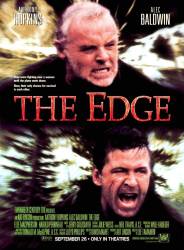
Question: To find south why not look at the sun. East to West?
Answer: That would only work when the sun is visible. In Alaska there are frequent rainy and overcast days where the sun is completely blocked by heavy clouds, making a precise directional determination difficult, if not impossible.
They could see the sun; it was a sunny day after the crash, and the next day they were able to see the North Star. To begin with, they had great visibility, and it seemed easy enough to find a mountain peak or pass to use as a quick reference.
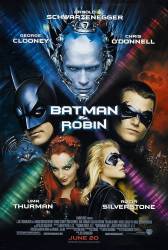
Question: How was Pamela Isley aka Poison Ivy able to fight Batgirl with martial arts-like skills towards the end of the movie? Pamela was a doctor and I highly doubt given her obsession with her research she had the time to take martial arts lessons in her spare time, if she had any during her stay in South America. Even after she transformed into Poison Ivy, her transformation could not have given her martial arts skills since her powers are based on plant abilities.
Answer: There's no way of knowing whether or not she "had the time" to study martial arts. Regardless of her studies, she could have made time to pursue this as an extra-curricular activity. Universities can have classes, clubs, competitions, and student groups for martial arts on campus that anyone can participate in. She may also have been studying it since childhood. She was also a botanist, so even with a rigorous academic schedule, she would likely have more free time than a medical student.
Answer: That and they had to have the women fight in here. I mean they couldn't have the guys hit her now could they? So it was necessary for her to fight competently at least.

Question: How come Graham was able to drive a car up to Ruth's house but couldn't for the life of him figure out how a telephone worked? When it was still ringing he said "Hello" thinking she'd answered.
Answer: He's young and he and his sister are alone. He's worried about his Grandma and she's not answering the phone. He's saying hello because he desperately wants her to answer so he knows she's OK. He feels helpless just letting the phone ring.
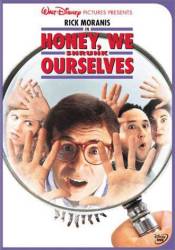
Question: Near the beginning, what does Wayne mean when he says "Nothing like the smell of 2-part apoxy resin"?
Answer: Epoxy resin is sometimes sold in two seperate tubes. You have to mix the contents of both for the epoxy to harden into plastic. It also shows how weird he is, as epoxy tends to smell pretty foul.

Question: Why was Ripley cloned?
Answer: In Alien 3, Ripley discovers there was an Alien queen embryo growing inside her, so she chose to kill herself. By cloning her, scientist were hoping the Alien queen embryo she had in her at the time of her death would also become cloned, which finally happen after the 8th try. This is also why the Alien queen they extracted from Ripley has some human traits.
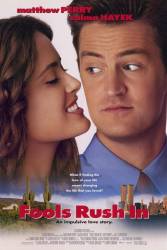
Question: Could you please tell me what the father is calling guacamole in the scene where Alex and Isabelle's parents meet? Alex's father says something about guacamole, and Isabelle's father says, "Now you insult (?) guacamole". I can't find what he says anywhere. Thank you.
Answer: "Now you're offending Amalia's guacamole! What's wrong with Amalia's guacamole?!"
I believe it says Mayan's guacamole. Not Amalia's.
No, Tomas says Amalia. Amalia is his wife.
Answer: Amalia is her mother... so yes he says Amalia.
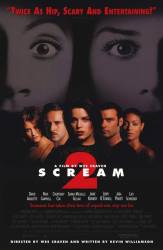
Question: Where is the David Schwimmer reference in this movie? I know that there is a Jennifer Aniston reference, but I heard that there was one about David Schwimmer.
Answer: It's when Dewey and Randy are talking about the movie Stab. Randy says to him "At least you get played by David Schwimmer, I get the guy who rode the stage coach through one episode of Dr Quinn".
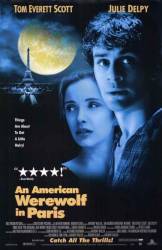
Question: How did they get Andy to the hospital after he banged his head on the Eiffel Tower? It seems highly unlikely there were any elevators around.
Chosen answer: The Eiffel Tower has several elevators in use that they could have taken.
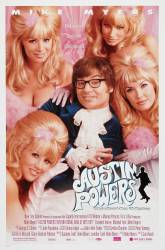
Question: It was mentioned that Austin's chest hair resembled a shape. Can anyone tell me what the shape is? I don't have the movie.
Chosen answer: It's supposed to resemble an upside-down version of, ahem, wedding tackle.
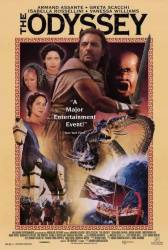
Question: At the beginning of the movie, when the men are boarding the ship, a line of sailors are marching single file, nodding their heads up and down and chanting "Ahh-ah, ah-ooh" repeatedly. What are they doing this for?
Answer: It's a marching chant, sort of like an ancient version of the marching music we have now.

Question: Does the art museum catch fire from the lava even though they tried to stop it by putting a bus against it?
Answer: Lava is extremely hot. It heats the air above and around it to such a degree that it can reach the flash point of various items.
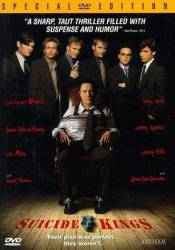
Question: Much ado is made near the start of the film about the kidnappers sending Elise's finger back to her family as a threat, but we learn later that she was never harmed. Did the film ever explain where the finger actually came from, or if it was even sent at all?
Answer: The finger is never shown, only mentioned. Since Elise looked to have all her fingers one must assume it was made up as part of the scheme to fool everyone.
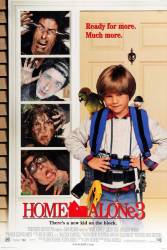
Question: When Beaupre thought there was a woman in the Alcott's house, why go back in and kill her? He thought she was in the shower so she couldn't see him, so there was no evidence to give the police about what he looked like.
Answer: I think Beaupre believed there was a woman, but not in the shower, but answering the phone.
Answer: It was Jernigan who thought there was a woman in the shower and he couldn't take the risk that if it was a woman, that she would eventually get out and see intruders in the house and call for the police. The only option open to Jernigan would be to kill her so there'd be no witnesses.
No it was Beaupre who thought there was a woman in the house.
I've seen the movie and I can confirm that it was Jernigan who opened the shower curtain because he thought a woman was in the shower.
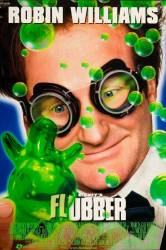
Question: Why did Wilson drop some white bead things to the floor at Sara's wedding? In order to let Phillip slide on them? But Wilson knew Phillip wouldn't show up at the wedding.
Chosen answer: It was rice and he just simply dumped them on the floor because he knew he wouldn't be needing it after the wedding to throw at the bride and groom because the Professor didn't show up.
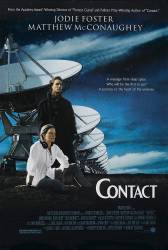
Question: If you read the book version of Contact you know that the stuff about transcendental numbers and the Artist's Signature was left out of the movie. This makes no sense to me, since it's not only the real ending, it's the whole POINT of the story. Without this information, the story's fundamental question (does God exist?) is not answered in the movie. Does anyone know why this was left out?
Answer: If anything, I think the film's producers deliberately left godly topics unaddressed (and questions dangling, unanswered) because they didn't want to alienate any particular audience. However, we know the producers of "Contact" certainly did vilify religion through the sinister scenes with Joseph, the evangelical extremist. At the same time, the film created empathy for the president's glib theological adviser, Palmer Joss. So, I don't think the film was shying away from religious topics, and I think it was pretty fair to the religious viewpoint, for the most part. But this movie wasn't about religion; it was about a primitive, materialistic, self-centered and aggressive species (humanity) reluctantly acknowledging the existence of vastly more intelligent and even godlike entities throughout the cosmos. Even the first-contact entities, advanced as they are, acknowledge other entities much more ancient and much more advanced (the virtual architects of the space/time conduit). The implication was that we live in a universe that may be populated with many intelligent entities that answer every human criteria of godhood. Ellie's narrow-minded atheism was surely shaken to its foundation by her experience; and, while she didn't "convert" to archaic earthly religions, she was spiritually a different person upon her return. The film, however, is open-ended and fence-straddling and doesn't presume to definitively answer the question of the existence of god, leaving it up to the audience to decide.
Answer: The film chooses to focus on Ellie's personal journey and how she deals with and comes to terms with what happens - it doesn't really involve God at all, other than the inclusion of Palmer Joss as a religious advocate, choosing to restrict itself to the much less theologically controversial theme of a straight first contact scenario, without the religious overtones. Given the depth of feeling on religious matters in the US, it's hardly surprising that the filmmakers preferred to leave this particular hot topic out. While Carl Sagan died during production of the film, he both co-produced and was involved in the story process, so he was clearly not concerned about this change.
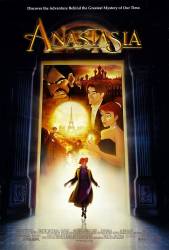
Question: Anastasia basically lost most of her memories from hitting her head, as well as the possible trauma of what happened to her the night her family was killed. Could someone really lose most of their memories that way?
Answer: Amnesia exists, but it is a temporary condition. It does not last for the long-term and people usually regain their memory in a day or two, sometimes up to a week. Extreme cases can last longer, but not in the way it is depicted in movies. Some people may lose memories due to severe brain damage from a traumatic injury, but that is permanent.

Answer: She doesn't really have one - not directly, anyway. The only link is that Susan Lefferts died at the Night Owl, and Bud saw Lynn with Lefferts when he was buying the alcohol for the party. Lefferts had the bandage on her nose at the time, which sparked Bud's curiosity and prompted him to seek out Lynn after Lefferts was murdered.
Tailkinker ★